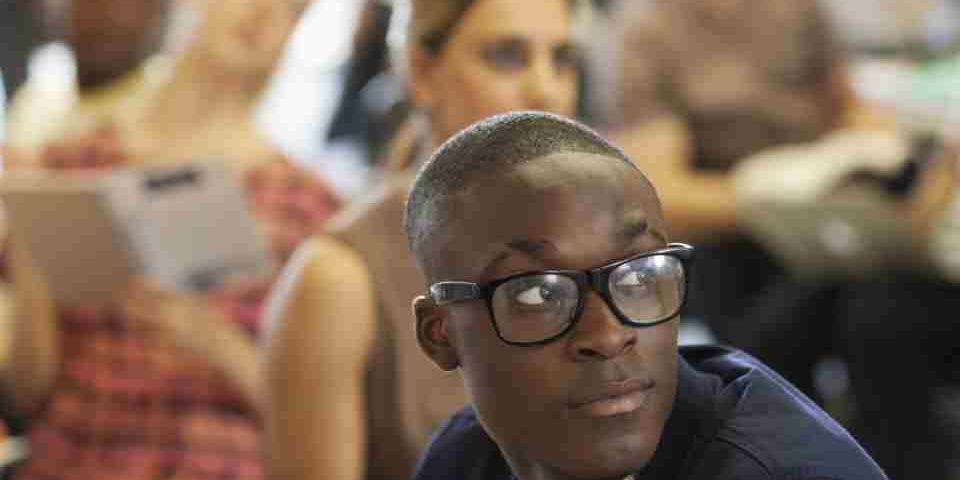Picking a college major can be a daunting task for many students.
- 如有疑问,请联系电邮
- contact@eetcgroup.com
USNEWS:了解B.A.学士学位和B.S.学士学位的区别!

USNEWS:最大化利用美国大学提供的国际学生服务
2019年1月20日
USNEWS:国际学生如何为美国大学申请程序做准备?
2019年1月23日By Josh Moody
对于中国学生来说,文科生与理科生是一个非常明确的概念。但是美国大学呢?对于留学生来说,B.A.学士学位和B.S.学士学位也一定不陌生。一般来说,B.A.学士学位侧重于人文和艺术,而B.S.学士学位侧重于数学和科学。但是,美国的学位设置与中国还是有很多不同的。
对于许多学生来说,选修一门大学专业是一项艰巨的任务。但是一旦学生确定了一门专业,接下来他们可能会面临另一个决定:在文科学士或理学学士学位之间进行选择。是不是很奇怪,这里与中国大学专业设置非常的不同。密歇根州的大峡谷州立大学(Grand Valley State University)负责学术事务的助理副校长舍恩德尔指出,“我认为这其中很大一部分是关于学生想要学习什么,他们想在毕业后如何使用他们的教育,以及他们想如何讲述他们的故事,”舍恩德尔说,增加学位类型可以塑造一个学生未来的职业道路。舍恩德尔说,B.A.学士学位反映了指导许多大学的文科传统,它强调哲学、文学、历史、社会科学、艺术和外语学习。虽然B.A.学士学位并不缺乏数学和科学,但它对这些科目的重视程度与B.S.学士学位不一样。
罗德岛大学教授兼心理学系主任马克·罗宾斯说,根据不同的领域,B.A.学士或B.S.学士的选择可以让学生走上不同的职业道路。例如,他指出,在B.A.学士学位选项中,心理学专业的学生经常去咨询,而那些获得B.S.学士学位的学生则倾向于专注于研究。罗宾斯指出,对于一个对获得心理学博士学位感兴趣的学生来说,获得B.S.学士学位是一个实际的第一步,因为这一选择将增强对统计和研究方法的理解,而不仅仅是获得B.S.学士学位。
中国的教育改革也在不断进行中,它们吸收着美国大学成功的经验。如某些重点医学院已经开始招收高中文科生报名,也就是说高中文科生也可以报告医学院校,未来也有希望成为一名医生。这就是改革。下面请看原文。
But once students settle on a major they may be faced with another decision: choosing between a Bachelor of Arts or a Bachelor of Science degree. While some colleges only have B.A. or B.S. programs in certain disciplines, others offer both options.To help students make that choice, experts say they should consider their long-term goals. Generally, a B.A. focuses on the humanities while a B.S. emphasizes science and math, notes Ellen Schendel, assistant vice president for academic affairs at Grand Valley State University in Michigan.
“I think a lot of this becomes about what the student wants to learn and how they want to use their education once they graduate, and how they want to tell their story about who they are,” Schendel says, adding the type of degree can shape a student’s future career path.
What Is the Difference Between a B.A. and B.S.?
A B.A. degree is reflective of the liberal arts tradition guiding many colleges, Schendel says, which emphasizes philosophy, literature, history, social sciences, art and foreign language study. While a B.A. isn’t devoid of math and science, it doesn’t have the same emphasis on these subjects as a B.S.
Depending on the field, a B.A. or B.S. option can set students on different career tracks, says Mark Robbins, professor and psychology department chair at the University of Rhode Island.
For example, he notes that psychology majors in the B.A. degree option often go into counseling, while those who earn a B.S. tend to focus on research. For a student interested in earning a Ph.D. in psychology, a B.S. is a practical first step, Robbins notes, as that option will enhance understanding of statistics and research methods more than a B.A.
Another example of how B.A. and B.S. degree options differ is illustrated by the University of Colorado—Boulder, which explains the different tracks in its computer science program on its website. For computer science students interested in becoming engineers, the CU website steers students to the B.S., whereas the B.A. option is for those interested in the field “who don’t identify as engineers.”
Both tracks produce graduates with desired skills, says James W.C. White, interim dean of arts and sciences at CU—Boulder. White says employers are unlikely to split hairs over the degree type, and that “it’s far more important when you apply for a job to make sure your employer knows what classes you’ve taken and what background you have because that will make a difference.”
White says a bachelor’s degree itself matters more than the initials that come attached to it, and while a B.A. tends to incorporate a broader sweep of academia, the B.S. is more focused. He says both degree options offer value to employers depending on what they are seeking.
“Do you want somebody who has a broad-based education? Or would you like to have somebody who has really drilled down deeply? That’s really an employer decision,” White says.
Schendel says the differences between a B.A. and a B.S. aren’t vast, which she attributes to how “disciplines have grown and changed and become more complicated.”
She notes, for example, that GVSU’s writing major has both a B.A. and a B.S. option. The main difference is three courses. For the B.A. option, those three courses are in foreign language study, whereas the B.S. shifts students into classes to build math skills. She feels the focus of that coursework is representative of the differences between the two degree options at many colleges.
“It’s really not a huge difference in many cases,” Schendel says.
The reason those lines have blurred, White says, is because “there’s really no national standard” for a B.A. or a B.S., allowing colleges to determine what type of degree to award.
He adds that, adhering to a liberal arts tradition, CU—Boulder offers more B.A. than B.S. programs. But that doesn’t mean B.A. programs are entirely for the arts, he notes, highlighting the chemistry major at Colorado, which offers only a B.A. option, despite being inherently focused on science.
Robbins says students are unlikely to be shut out of a job opportunity based on the choice of a B.A. vs. a B.S. degree. The CU—Boulder website also reflects that point, noting “demand for graduates with computer science skills is so high that employers are not making a distinction” between B.A. and B.S. degrees, and that technology jobs will have a high need for years to come.
Which Degree Program Is Better: B.A. or B.S.?
Kristi Wold-McCormick, university registrar at CU—Boulder, offers students a historical perspective on the difference between a B.A. and a B.S. degree, and how it has evolved over the years.
“Historically, the BA degree was considered the premiere degree, and at some institutions is still the primary or only degree awarded regardless of major or concentration. This is likely more prevalent at ‘prestigious’ private institutions. As colleges and student bodies became more diversified in the late 19th and early 20th centuries, prompted by things like the Morrill Act (which established many state universities), the industrial revolution and the GI Bill, the BS degree became more common, especially in fields such as engineering, agriculture and business. Again, these disciplines tend to be more science-oriented and thus, the BS degree makes sense,” Wold-McCormick wrote in an email.
She suggests students who are unsure of which degree to pursue should take a close look at the curriculum to inform that decision.
“I think students are best advised to look at the overall quality and content of the curriculum offered by an institution more so than the degree awarded. Neither the BA or BS should be viewed as superior to the other. Rather, they should be viewed as … comparable or equal in quality with a slightly different focus based on the student’s academic experience,” Wold-McCormick says.




